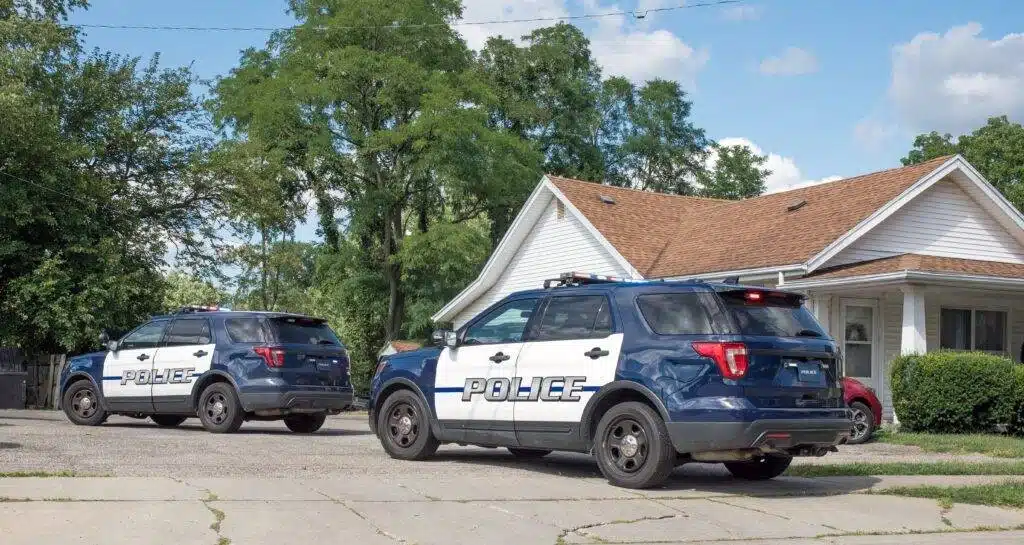Facing false accusations of any kind is stressful, but when it’s false domestic violence accusations, the ordeal ahead can be catastrophic. In Colorado, domestic violence isn’t treated as a standalone crime; it’s a sentence enhancer that can increase the severity of otherwise minor incidents.
According to state law, domestic violence accompanies other crimes committed in an effort to seek revenge against, coerce, control, punish, or intimidate others within intimate or close relationships.
Colorado courts and law enforcement are required to take domestic violence allegations seriously. As such, a single claim (with probable cause) can lead to arrest, court appearances, and restrictions on your freedom before you’ve had the chance to tell your side of the story.
Understanding your rights and proceeding with care from the very beginning can make the difference between a dismissed case and long-term consequences.
1. Consult & secure a qualified DV attorney.
In domestic violence cases, time is of the essence. If you’ve been arrested for DV, a protection order automatically follows your first court appearance in order to restrict contact between you and your accuser. A mandatory protection order is issued at the defendant’s first court appearance or arraignment. The order also affects your living situation, as well as your time with your children. The sooner you speak to a skilled DV defense attorney in Denver, the sooner you can start making sense of the legal process ahead.
Your lawyer will also act as a barrier between you and law enforcement. It is never wise to try to “explain” your side of the story to police or investigators without legal counsel present. What seems like a simple clarification may be taken out of context and used against you. By letting your attorney handle communications, you protect your rights and reduce the chance of harming your case (even if unintentionally).
2. Preserve evidence and document everything.
False claims sometimes stem from motives like custody issues or revenge tactics. To argue against the accusations, evidence is imperative. Keep track of all your emails, texts, photos, social media comments or messages, call history, or any other communications that contradict the allegations (such as your whereabouts).
Document past interactions with your accuser as well (ex: times, dates, content of communications). Witnesses or neutral third-party observations may help dispute the accepted version of events.
It can also be helpful to organize this evidence chronologically, so your attorney can clearly show inconsistencies in the accuser’s timeline. In some cases, digital records like GPS data or work schedules may prove that you could not have committed the alleged act. The stronger your records, the more credible your defense becomes.
3. Do not contact your accuser.
Once a protective order is issued, it’s important to adhere to its guidelines. Do not contact your accuser and avoid posting about the situation you’re facing online. Even if you’re just venting, your activity on social media can be used against you.
Violating a no-contact order can result in additional criminal charges, which may be harder to defend against than the original accusation. It’s essential to treat every condition of the protective order seriously, no matter how inconvenient or unfair it feels.
4. Challenge motives and credibility.
Your defense may focus on establishing what motive the accuser may have to make false domestic violence accusations. They may also highlight inconsistencies in the accuser’s version of events or point to a lack of proof. Presenting an alibi or providing evidence may also discredit the timeline or the nature of the accusations.
An experienced domestic violence attorney in Denver can develop these arguments, file motions to suppress weak evidence, and build an effective courtroom strategy.
In many cases, judges and juries give significant weight to credibility. Pointing out patterns of dishonesty, inconsistencies in previous statements, or highlighting ulterior motives, such as custody disputes, can weaken the prosecution’s case.
5. Follow firearm restrictions.
Protection orders can include immediate firearm prohibitions and mandatory counseling, which may start before your trial date. Firearm relinquishment can be ordered immediately and has specific statutory procedures. Mandatory counseling or treatment is generally imposed as part of sentencing after conviction rather than as an automatic pre-trial requirement. Violating these orders can result in additional charges, even if done inadvertently. Your attorney can help you stay compliant while you wait for your hearing date.
If you own firearms, consult with your lawyer to determine the proper way to temporarily surrender them to remain in compliance. Attempting to hold onto them in defiance of a court order can significantly harm your defense.
6. Use Colorado’s false reporting statutes when appropriate.
If the accuser later recants or admits to falsehood, they may be subject to felony or misdemeanor false reporting charges. Under Colorado law, false reporting is normally a class 2 misdemeanor punishable by up to 120 days in jail and/or fines. Specific aggravated false reports (like false emergency reports) carry higher classifications and penalties. Though it may not always be the best option to pursue, being aware of the statute may be of use in supporting your case.
7. Aim for dismissal and seal the record.
If the charges are dropped, it’s essential to protect your privacy and reputation. Your domestic violence attorney in Denver can guide you through both dismissal and record-sealing procedures.
A sealed record ensures that future employers, landlords, and others can’t access details of the accusation.
8. Recover after the accusation.
Even unproven allegations can damage careers, relationships, and your overall reputation. Seeking help from a mental-health professional or family counselor may help you regain a sense of normalcy.
Support networks can also play a key role. Friends, relatives, or community organizations may provide testimony of your character, which can be valuable during proceedings and also as you rebuild your life after the case.
If you’ve been wrongfully accused of abuse, you need clarity, a strong defense, and experienced legal guidance. With the right DV defense attorney, you can protect yourself, fight the claims, and work to clear your name.
References
https://www.da4colorado.gov/domestic-violence-fast-track-program
https://www.findlaw.com/state/colorado-law/colorado-family-law-on-domestic-violence.html
https://law.justia.com/codes/colorado/title-18/article-1/part-10/section-18-1-1001/
https://codes.findlaw.com/co/title-18-criminal-code/co-rev-st-sect-18-8-111/
https://www.justia.com/criminal/expungement-record-sealing/expungement-forms-50-state-resources/













